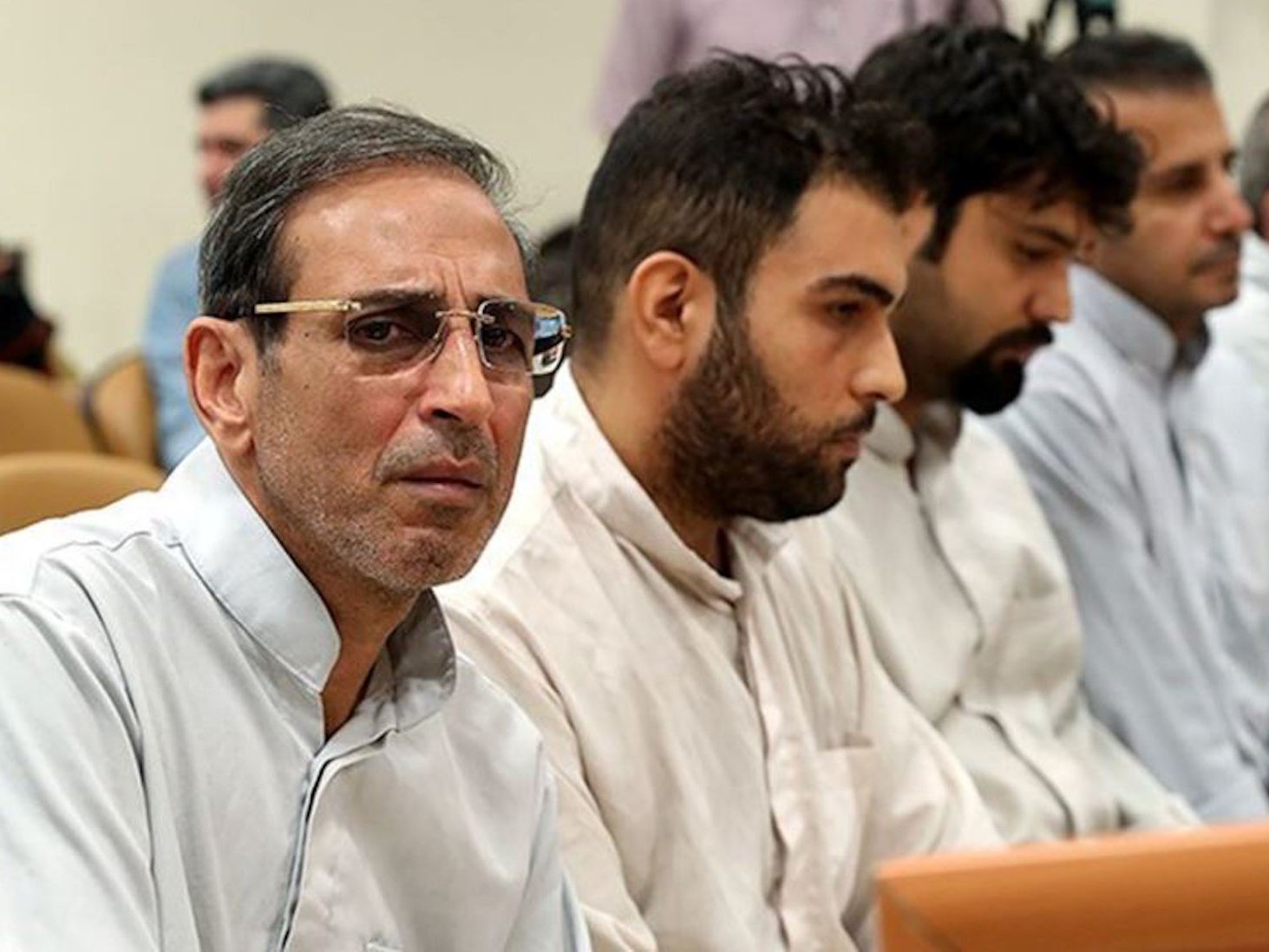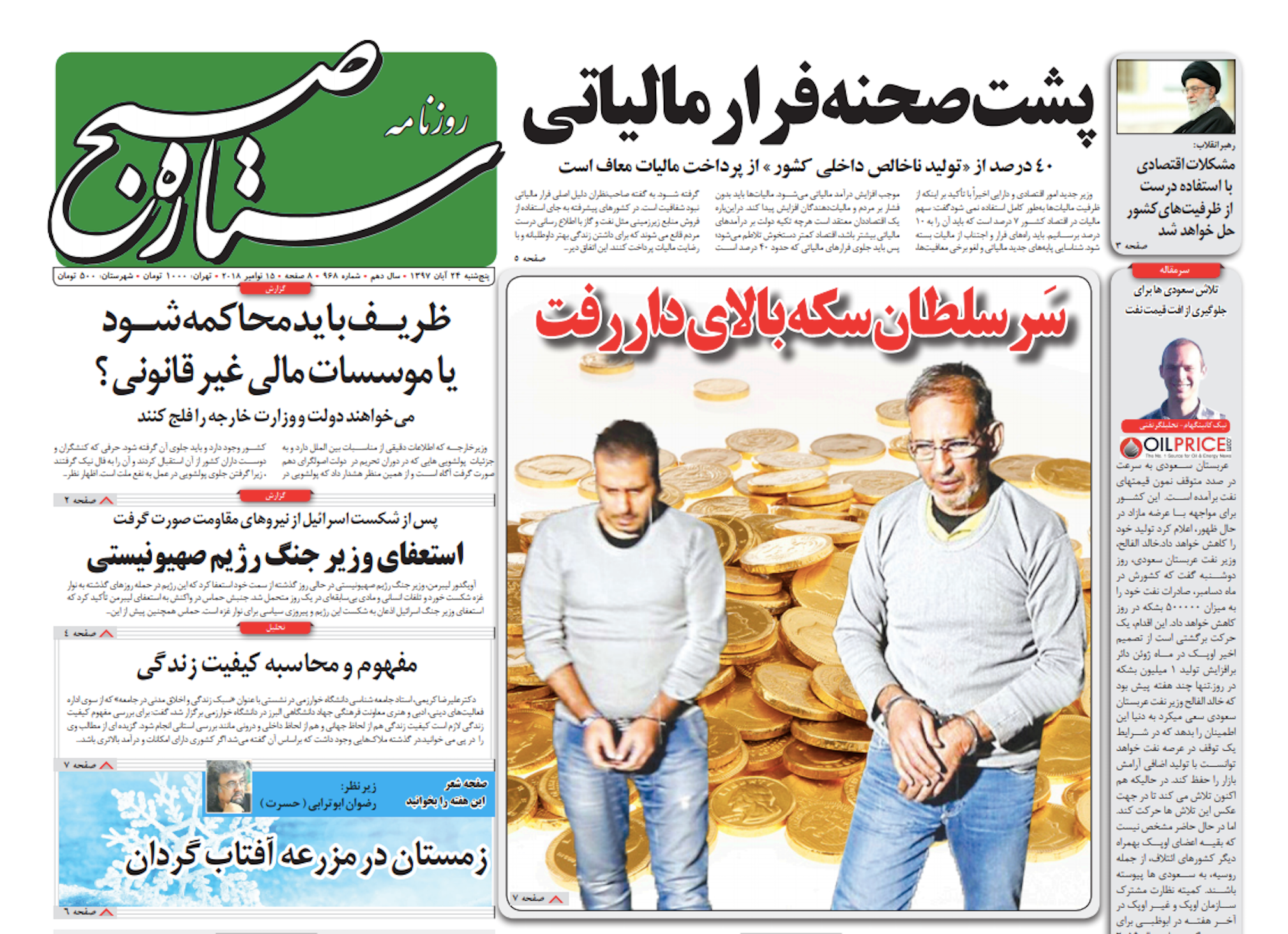‘Sultan of Coins’ executed as Iran violates human rights to placate anger over economy and corruption
Three more remain on death row over financial crimes after convictions in quick trials that critics say fail to meet Iranian or international legal standards

Your support helps us to tell the story
From reproductive rights to climate change to Big Tech, The Independent is on the ground when the story is developing. Whether it's investigating the financials of Elon Musk's pro-Trump PAC or producing our latest documentary, 'The A Word', which shines a light on the American women fighting for reproductive rights, we know how important it is to parse out the facts from the messaging.
At such a critical moment in US history, we need reporters on the ground. Your donation allows us to keep sending journalists to speak to both sides of the story.
The Independent is trusted by Americans across the entire political spectrum. And unlike many other quality news outlets, we choose not to lock Americans out of our reporting and analysis with paywalls. We believe quality journalism should be available to everyone, paid for by those who can afford it.
Your support makes all the difference.The execution of two Iranian gold traders this week has raised concerns that the authorities are seeking to use them as scapegoats to divert attention from corruption at the heart of the regime.
But while the Iranian establishment has hailed the arrests and prosecutions of the traders, charged with corruption and tried by a special court dealing with cases of economic malfeasance, rights advocates have criticised what they call “kangaroo trials”.
Among the executed was Vahid Mazloumin, branded “the Sultan of Coins” for hoarding gold in an alleged effort to manipulate prices.
The pair were convicted on charges of “spreading corruption on earth”, considered a severe breach of Iranian law. Amnesty International called the trial “grossly unfair”.
“In Iran, unfortunately, instead of punishing the main elements of systematic corruption, they punish and execute persons who are not important,” said Mahdi Khalili, a reformist politician and political scientist in Tehran. “The main ones are free from any problems or punishment.”
Iran ranked 130 out of 180 countries in Transparency International’s 2017 corruption index. Economic pressures exacerbated by tough US sanctions on Iran under the Trump administration have hammered away at the rial, which has lost 75 per cent of its value this year.
But the executions of the two businessmen, with three more merchants on death row, shows that Iran is in danger of exacerbating its human rights difficulties in order to placate anger over perceived corruption.
Human rights specialists and jurists, including Iranian Nobel Peace Prize winner Shirin Ebadi, have said the suspects were condemned to death in quick trials that were unfair and failed to measure up to Iranian law much less international standards, which include a thorough appellate review process for death sentences.
Among other irregularities, the courts apply secretive national security rules to cases of white-collar crime, restricting the ability of defendants to get a lawyer.
In Iran, unfortunately, instead of punishing the main elements of systematic corruption, they punish and execute persons who are not important
“Iran’s hanging of people who have been convicted in courts without a fair trial is a blatant violation of law,” said Hadi Ghaemi, executive director of the Centre for Human Rights in Iran, describing the trial venues as “kangaroo courts”.
The prosecutions suggest Tehran is attempting to shift blame for the collapse of the country’s currency to low-level traders and grey market businessmen in an effort to deflect from the Iranian system’s own incompetence and corruption, rooted in the economic power of religious charities and ideologically fervent security branches, especially the Revolutionary Guard.
It also shows what many critics have described over the years as the arbitrary nature of justice under the Islamic republic, where prominent members of ethnic and religious minorities as well as the Shia Muslim majority, and dissidents as well as businessmen, can become entangled in an obscure, Kafkaesque legal system overseen by Islamic jurists under the sway of shadowy security enforcers.

State-dominated media hailed the executions: “Death: Compensation for betraying the people,” said a headline in the daily newspaper Tejarat, or Commerce.
Mr Mazloumin, 58, earned the moniker Sultan of Coins for his perceived mastery of the Iranian gold market, reportedly trading up to $30m worth of gold a day. Iranians have rushed to convert their savings into gold as the country’s currency has lost value.
Mr Mazloumin and his partner were reported to have been arrested in July, accused of hoarding two tons of gold in order drive up prices, according to local media. He always insisted on his innocence, explaining in an interview published after his death that gold prices rose and fell based on supply and demand.
Supreme Leader Ali Khamenei approved the creation of special economic courts to handle corruption cases in August. Since then, dozens of businesspeople have been sentenced by the court.
Mr Mazloumin and Mohammad Esmail Ghasemi were tried hurriedly in a proceeding that was partially broadcast on state television in September, with hardline media clamouring for the ultimate punishment and a charge of spreading corruption on earth.
“Gallows waiting for the Sultan of Coins,” the Javan newspaper declared in September.
The two men were initially sentenced to death in early October. The judiciary announced on 21 October that the death sentences against the two had been upheld.
This week they were abruptly hung at the gallows.
Mr Khalili said he suspected the executions were meant to distract the public from scrutinising the underlying causes of corruption, but also to send a warning to private sector vendors to lower their profit margins. While both may be humdrum political objectives, rights advocates say they in no way justify the death penalty.
“Under international human rights law,” Amnesty International’s Philip Luther said, “the death penalty is absolutely forbidden for non-lethal crimes, such as financial corruption.”
Join our commenting forum
Join thought-provoking conversations, follow other Independent readers and see their replies
Comments